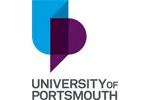We're moving! This site will be relocating to goingto.university in 2026. Please update your bookmarks to the new address.


the United Kingdom
University of Portsmouth| The award | How you will study | Study duration | Course start | Domestic course fees | International course fees |
|---|---|---|---|---|---|
| BA (Hons) | Full-time, Sandwich | 3 - 4 years | September | - | - |
Overview
Learn the skills and get the workplace experience to support children and young people with equality at the heart of your practice on this Childhood and Youth studies degree.
You'll discover how factors such as the education system, youth culture and social media affect children's development. You’ll also have the chance to explore optional topics such as outdoor education, safeguarding and the role of play in a child’s development, and to focus your studies on a particular specialism - education and teaching, community and youth/family provision, or leadership and enterprise.
Develop the knowledge and skills to support children with special educational needs (SEN) and those from a care background, making sure no child misses out on the educational and development opportunities available to them.
After the course, you’ll be set for a career supporting children and their families in areas such as youth work, social care and education.
Course highlights
Endorsed by:
You can choose modules that lead to the exit award BA Childhood and Youth Studies with Social Pedagogy. This pathway is endorsed by the Social Pedagogy Professional Association (SPPA), which means you can graduate as a "Social Pedagogy Practitioner".
This demonstrates that you meet the SPPA's Standards of Proficiency, which are central to developing relationship-centred, dialogic practice that supports children and young people, particularly those who are vulnerable or disadvantaged.
Careers and opportunities
There will always be a demand for skilled and knowledgeable professionals to work with children and young people.
As well as specialist expertise, this course helps you develop transferable skills valued by all kinds of employers, such as:
What areas can you work in with a childhood and youth studies degree?
After the course, you could work in areas such as:
Graduate destinations
Roles our graduates have taken on include:
Ongoing career support – up to 5 years after you graduateGet experience while you study with support to find part-time jobs, volunteering opportunities and work experience. Towards the end of your degree and after graduation, you'll get 1-to-1 support from our Graduate Recruitment Consultancy to find your perfect role.Futureproof your career
Placement year (optional)
In addition to your compulsory placements during year two, you can also choose to do a paid work placement year after your second or third year. This lets you put your new skills to work while developing valuable links with employers.
However long you do a placement for, it’s fantastic for your CV and will really help you stand out when applying for jobs after graduation. Mentoring and support throughout your placement will help you to get the most from the experience.
You could also choose to set up your own business, or take a voluntary placement.
Securing a placement
We’ll help you secure a work placement that fits your aspirations. We have strong links with a wide variety of placement providers including colleges, schools, other educational institutions, and charities in the UK and abroad.
Previous placement destinations
Previous students have secured placement positions at organisations such as:
Studying abroad
You can choose to use your placement year to extend your studies abroad. We have close links with universities in countries such as:
https://www.port.ac.uk/study/undergraduate/undergraduate-fees-and-student-finance
104-112 points to include a minimum of 2 A levels, or equivalent. Applicants must pass Enhanced Disclosure and Barring Service (DBS) before starting their professional placement working with children and young people.
English language proficiency at a minimum of IELTS band 6.0 with no component score below 5.5.
Below are some suggested courses at other providers that you may also be interested in:
BSB50420 Diploma of Leadership and Management Diploma
Engineering Institute of Technology
Find out moreMarketing Management - Digital Business Concepts Bachelor Degree
Fontys Economy Tilburg
Find out moreConsider a Foundation or Pathway course at University of Portsmouth to prepare for your chosen course:
If you do not meet the entry requirements for this course then consider one of these courses from another institution:
There are 531 other courses listed from University of Portsmouth. A selection of these are displayed below:
Join the StudyLink email list and never miss a chance to turn your study abroad dreams into reality!
